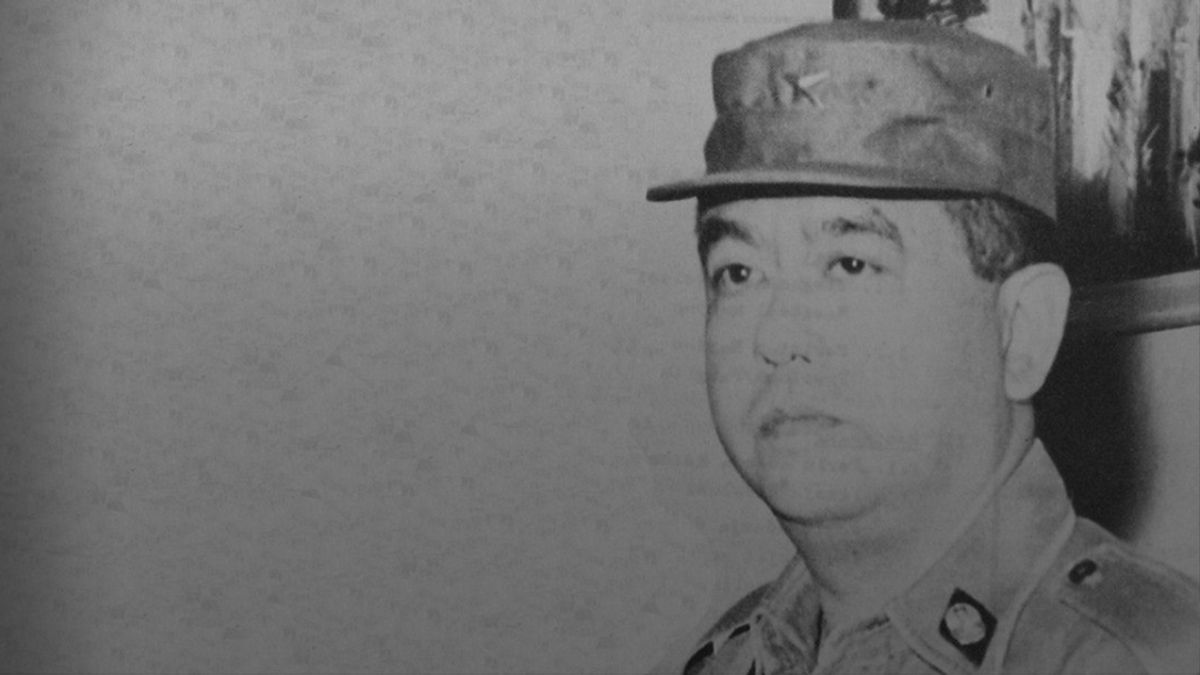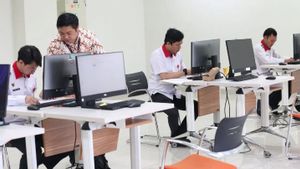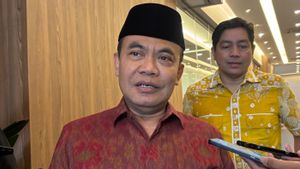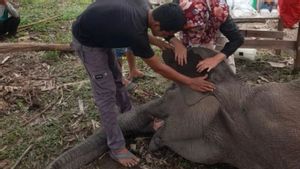Continued from VOI's signature series, "Becoming a National Hero". In the article "Hero Titles in the Veil of Eternal Politicization" we have seen how the politicization of the awarding of national heroes in this country. In this article, we examine the Basuki Rahmat controversy as the most famous example of the politicization of the title of national hero. How his role in Sukarno's overthrow became a controversy over his heroic title.
Major General (Mayjen) TNI Basuki Rahmat is a military figure who is very skilled at adapting to models of power. He always has a place. Both in the Old Order and in the New Order. Basuki began his military career during the Japanese occupation. 1943, to be precise. At that time, he joined the Homeland Defense Army (PETA). During independence, Basuki joined the People's Security Army (TKR).
His career was smooth, continued until he was appointed Head of Kodam V Brawijaya. In 1966, when President Sukarno founded the Dwikora Cabinet, Basuki Rahmat was appointed Minister of Veterans and Demobilization. It is in this position that the sharpest beam is directed at him. He is considered to have played a major role in the issuance of the Order of Sebelas Maret alias Supersemar.
1966 was a very chaotic year. Since January, students have demonstrated demanding President Sukarno to resign. This action lasted until March 1966. On March 11 of the same year, Sukarno held a Dwikora Cabinet meeting. The trial was suddenly stopped because news circulated about the movement of thousands of demonstrators to the Merdeka Palace, where the trial was held. Sukarno immediately shifted to the Bogor Palace.
In this situation, Basuki coordinated with Brigadier General M. Jusuf, Major General Mursid and Brigadier General Amir Machmud to discuss this precarious condition. In the afternoon, Basuki with Amir and Jusuf went to the Bogor Palace to meet Sukarno. Before leaving, they first asked for permission from the Minister / Commander of the Army, Lieutenant General Soeharto, who was ill at that time and unable to attend cabinet meetings or palace security.
Soeharto gave permission to Basuki and the two generals to leave for Bogor, while instructing, "Send my respectful greetings to Mr. President and convey my ability to overcome the situation if the President gives me confidence," Suharto said as quoted from pahlinterenter.com, a website run by the Ministry. Social (Ministry of Social Affairs).
Arriving at the Bogor Palace, Sukarno ordered Suharto to draft a security order. The letter was also signed by Sukarno, although it was not typed in accordance with presidential administrative procedures. Together with this letter, the generals returned to Jakarta to deliver the letter to Suharto.
The role of overthrowing Sukarno
However, there is another version of the story. Soekardjo Wilardjito, Soekarno's former aide, once told about the incident at the Yogyakarta LBH Office on August 22, 1998. According to Soekardjo, that day Basuki came with Amir, Jusuf, and another general: Maj. Gen. Maraden Panggabean. The four of them came carrying a folder containing Supersemar's documents that had been typed by Suharto's confidant, Ali Moertopo.
The atmosphere of the Supersemar signing was tense. Sukarno immediately protested when the generals in front of him gave the letter. A letter which, according to Soekardjo's testimony, was not a letter on presidential letterhead. "You know, the dictum is a military dictum, not a presidential dictum," said Sukarno in a book written by Sukardjo, They Menodong Bung Karno: Testimony of a Presidential Guard (2008).
Responding to Sukarno's protests, Basuki said, "To change, the time is very limited. Just sign it, sire. Bismillah," he said. Maraden Panggabean replied in response to Basuki's words by pulling out an FN 46 pistol and pointing it at Sukarno. Seeing that, Sukardjo quickly drew a gun and aimed it at the generals.
Not wanting bloodshed, Sukarno relented. The letter which is now known as Supersemar was signed. "Don't! Don't! Yes, I have to sign this mandate. However, when the community is safe and orderly, this mandate will be returned to me," said Sukarno. After Supersemar was signed, the four Generals left, returned to Jakarta, leaving it to Suharto.
Supersemar then became Soeharto's entrance to the seat of power. Supersemar also has an impact on changing the life order of the nation and state. Armed with Supersemar, Soeharto moved to disband the PKI. The dissolution was done on behalf of Sukarno. Suharto then even issued Presidential Decree No. 1/3/1966 regarding the dissolution of the PKI and declaring the PKI a banned organization.
Seeing Soeharto's actions, Sukarno immediately sent a letter of warning. Its contents remind Soeharto that the authority given to him is only the restoration of security and order. It is not the dissolution of political parties, let alone an order to detain people affiliated with the PKI. Soeharto did not flinch. He continues to carry out his agenda.
Sukarno even gave Suharto a stern warning that Supersemar was not a letter of transfer of power. The warning was conveyed by Sukarno in his speech at the commemoration of the Proclamation of Independence Day on August 17, 1966. March is a transfer of authority, even though it is not, "said Sukarno, quoted from the video of Sukarno's speech in the National Archives of the Republic of Indonesia.
Since the existence of Supersemar, Suharto felt that he really held full power. Soeharto slowly disarmed Sukarno's role as president, until Sukarno actually stepped down in 1967. Basuki Rahmat's name was behind a dark version of the Supersemar story, as an introduction to the letter along with three other generals.
When Suharto took office as president, Basuki was trusted as Minister of Home Affairs in the I Development Cabinet for the period 1968-1973. However, when he had not finished his term of service, Basuki died on January 8, 1969. One day after that, he was awarded the title of national hero by Soeharto. He was also given a posthumous promotion to General TNI to Basuki.
Next article: "The Dark Side of National Hero: Tan Malaka, Who Brings the Rebellion Movement"
The English, Chinese, Japanese, Arabic, and French versions are automatically generated by the AI. So there may still be inaccuracies in translating, please always see Indonesian as our main language. (system supported by DigitalSiber.id)













